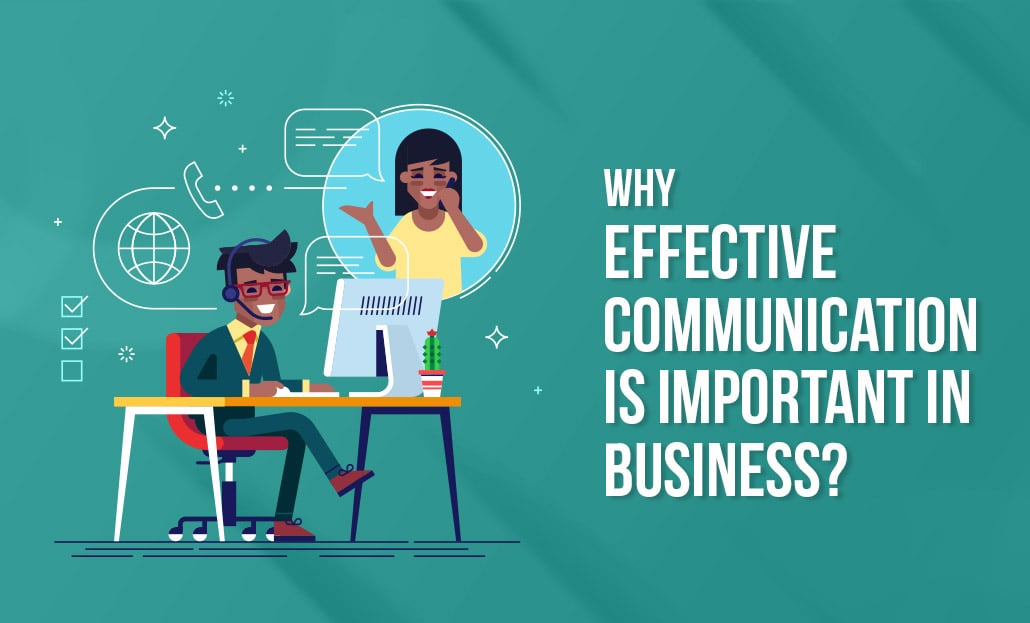Effective communication is a cornerstone of success in the business world. Whether you're collaborating with colleagues, presenting ideas to clients, or negotiating deals, the ability to communicate clearly and persuasively is essential. In this article, we will explore key strategies and techniques to help you master the art of effective communication in a business context.
Understanding the Importance of Effective Communication
Clear and Concise Messages
One of the primary goals of effective communication in business is to deliver clear and concise messages. When you can articulate your ideas in a straightforward and concise manner, you increase the likelihood of being understood by your audience. Clarity helps eliminate misunderstandings and reduces the chance of errors, enhancing productivity and efficiency within your organization.
Building Strong Relationships
Effective communication is instrumental in building strong relationships in the business world. When you can convey your thoughts and ideas effectively, you establish trust and credibility with your colleagues, clients, and partners. This trust forms the foundation for productive collaborations, fostering teamwork and enabling successful outcomes. Good communication also helps establish positive professional relationships, leading to better networking opportunities and career growth.
Strategies for Effective Communication
Active Listening
Active listening is a fundamental aspect of effective communication. It involves giving your full attention to the speaker, focusing on understanding their message rather than simply waiting for your turn to talk. By practicing active listening, you demonstrate respect for the speaker and gain a deeper understanding of their perspectives and needs. This allows you to respond more effectively and tailor your message accordingly.
Clarity and Simplicity
In business communication, simplicity is key. Avoid using unnecessary jargon or complex terminology that may confuse your audience. Instead, strive for clarity by using simple and concise language. Break down complex ideas into manageable concepts and provide relevant examples or analogies to enhance understanding. Simplicity not only ensures your message is easily comprehensible but also demonstrates your ability to convey information effectively.
Non-Verbal Communication
Effective communication extends beyond words. Non-verbal cues such as facial expressions, body language, and tone of voice play a crucial role in conveying your message accurately. Pay attention to your non-verbal communication and ensure that it aligns with your verbal message. Maintain good eye contact, use appropriate gestures, and project confidence through your body language. By mastering non-verbal communication, you can enhance the impact and effectiveness of your overall message.
Overcoming Communication Barriers
Cultural Awareness
In today's globalized business environment, cultural awareness is vital for effective communication. Different cultures have distinct communication styles and norms. By familiarizing yourself with these cultural nuances, you can avoid misunderstandings and adapt your communication approach accordingly. Respect cultural differences, be mindful of potential language barriers, and seek to bridge any gaps that may hinder effective communication.
Emotional Intelligence
Emotional intelligence plays a significant role in overcoming communication barriers. Understanding and managing your emotions, as well as being empathetic towards others, can help navigate challenging conversations and resolve conflicts. By practicing emotional intelligence, you can foster open and honest communication, build stronger relationships, and address issues effectively.
Conclusion
Mastering the art of effective communication in business is a valuable skill that can propel your career and contribute to your organization's success. By focusing on clarity, active listening, non-verbal cues, cultural awareness, and emotional intelligence, you can enhance your communication abilities and build meaningful connections with colleagues, clients, and partners. Embrace the power of effective communication as a tool for collaboration, innovation, and growth in the business world. Remember, communication is a continuous learning process, and by practicing and refining these strategies, you can become a master communicator and achieve your professional goals. So, invest time and effort in honing your communication skills, and reap the rewards of effective and impactful business communication.
Key Takeaways
Effective communication is crucial for success in the business world, fostering collaboration, building relationships, and driving positive outcomes.
Strategies such as active listening, clarity and simplicity, and non-verbal communication are essential for effective communication.
Overcoming communication barriers requires cultural awareness and emotional intelligence.
Continuous practice and refinement of communication skills are necessary to become a master communicator.
Remember, the art of effective communication is a journey, and with dedication and persistence, you can become a proficient communicator, paving the way for professional growth and success in the dynamic world of business.

Comments
Post a Comment